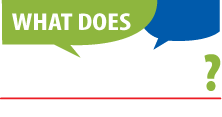Phrases starting with the letter: A B C D E F G H I J K L M N O P Q R S T U V W X Y Z
Definition of: fraud
(frôd) noun
1. Deception in order to gain by another's loss; craft; trickery; guile.
2. One who acts fraudulently; a cheat.
3. A deceptive or spurious thing.
4. Law Any artifice or deception practiced to cheat, deceive, or circumvent another to his injury. [<OF fraude <L fraus, fraudis deceit]
—fraud′ful adjective
—fraud′ful·ly adverb
—fraud′less adjective fraud′·less·ly adverb
—fraud′less·ness noun Synonyms: artifice, cheat, cheating, deceit, deception, dishonesty, duplicity, imposition, imposture, swindle, swindling, treachery, treason, trick. A fraud is an act of deliberate deception with the design of securing something by taking unfair advantage of another. A deceit or deception may be designed merely to gain some end of one's own, with no intent of harming another; an imposition is intended to take some small advantage of another, or simply to make another ridiculous. An imposture is designed to obtain money, credit, or position to which one is not entitled, and may be practiced by a street beggar or by the pretender to a throne. All action that is not honest is dishonesty, but the term dishonesty is generally applied in business, politics, etc., to deceitful practices which are not distinctly criminal. Fraud includes deceit, but deceit may not reach the gravity of fraud; a cheat is of the nature of fraud, but of a petty sort; a swindle is more serious than a cheat, involving larger values and more flagrant dishonesty. Fraud is commonly actionable at law; cheating and swindling are for the most part out of the reach of legal proceedings. Compare ARTIFICE, DECEPTION, TREACHERY. Antonyms: fairness, honesty, integrity, truth, uprightness.

Comment about this word, ask questions, or add new information about this topic: